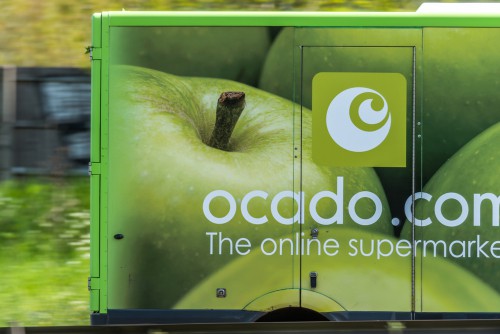Introducing your business to the world starts with a name. The process of naming a company can be a challenging puzzle – finding an original, unique title that is not only searchable on search engines like Google but also encapsulates the essence and character of your brand. The name should also have a timeless appeal, remaining relevant as your business evolves and diversifies. Sounds tricky, right? Don’t worry! This guide will walk you through the process, giving you practical advice and creative tips.
Types of company names
Understanding different types of company names can be a great starting point. It will give you a framework for brainstorming and open up a wide array of possibilities. Here are some categories to consider:
Descriptive company names
These names give an immediate idea of what the company does. For instance, ‘AutoTrader’ or ‘Burger King’ fall under this category. The obvious advantage is their clarity, leaving no room for confusion.
Abstract company names
Abstract names do not have an apparent connection with the business. Take ‘Zoopla’ or ‘Spotify’ as examples. They may not explicitly describe what the company does, but they are distinctive and create a unique identity.
Acronymic company names
An acronymic name is a series of initials that represent the company’s full title. ‘BBC’ (British Broadcasting Corporation) or ‘HSBC’ (Hong Kong and Shanghai Banking Corporation) are good examples. These names can be memorable and easy to recall.
Geographical company names
A company name can also reflect its location. Consider ‘Yorkshire Tea’ or ‘California Pizza Kitchen.’ These names can evoke a sense of place and tell customers about the business’s origins or scope.
Compound company names
These names come from combining two or more words. Think ‘Snapchat’ or ‘JustEat.’ Compound names can be catchy and easy to remember, often forming new, unique words.
Founder company names
Many businesses adopt their founder’s name as the company name. ‘Marks and Spencer’ or ‘Ford’ are typical examples. They give the company a personal touch and strong identity.
Brainstorming tips for naming a company
Once you have an understanding of the different types of company names, you can start brainstorming. Here are some helpful tips to ignite your creative thinking:
Write out your story
Every business has a unique story. Putting your story into words can provide a wealth of inspiration for your company name. Look for standout phrases, values, or key moments that might translate into a fitting name.
Take a personal inventory
Your personal interests, values, and inspirations can also inform your company name. It could be a hobby, a beloved book, or a value that you hold dear.
Look at other business names in your industry
Analysing your competitors can offer valuable insights. Understand what works for them and what doesn’t. Be inspired, but make sure your name remains unique.
Look at other industry business names
Don’t limit yourself to your own industry. Exploring company names in different sectors might spark an idea that fits perfectly with your business.
Do an emotional brainstorm
Reflect on the emotions you want your brand to evoke. How do you want your audience to feel when they interact with your product or service? Considering these questions can guide you towards a resonant name.
Check the thesaurus
The thesaurus can be an excellent tool for naming a company. It offers alternatives and synonyms for common words, which might give your name a unique twist.
Mull over mythology, movies & legends
Drawing from mythology, popular culture, or legends can lead to intriguing, symbolic names. They offer a richness of meaning and stories that can enhance your brand.
Use a business name generator
Online business name generators can be a source of quick inspiration. They can help combine words in unique ways and generate a list of potential names.
Essential steps for naming a company in the UK
After brainstorming potential names for your UK-based company, you need to refine and test your ideas against several important criteria. Here’s a more detailed guide on taking those steps from a UK-specific perspective:
Write out a mission statement
First, it’s essential to have a clear idea of your business’s purpose, values, and goals. Crafting a mission statement can help clarify your vision and provide a foundation to evaluate potential names. This statement can serve as a yardstick for testing whether a name truly captures the essence of your brand. Think about what you want your business to achieve, how you plan to serve your customers, and what values are at the core of your operations.
Check business name availability
In the UK, you need to check that your desired name isn’t already registered or too similar to an existing name on the Companies House register. You can use their free WebCheck service to search the database. It’s important to note that even if a name isn’t on the register, it could still infringe on a trademark, so you should also check the UK Intellectual Property Office’s Trade Mark Register. Be careful to avoid sensitive words or phrases that require approval, as listed on the Companies House website.
Check domain availability
Your online presence is critical, and having a website with your company name as the domain is a powerful tool. It can be a good idea to think of your URL first when naming a company. You can check the availability of your preferred domain name using various online services, such as Nominet for .uk domains or international domain registrars like GoDaddy or Namecheap for others. Remember, your domain name doesn’t have to be the same as your registered business name, but it helps with brand consistency.
Check social media
Just as with your domain, you want your business name to be consistently represented across all key social media platforms. Use a service like Namecheckr to see if your preferred name is available across multiple platforms. This step ensures your brand is easily recognisable and accessible wherever your customers may interact with you.
Register your business name
Once you’re confident in your choice, it’s time to register your business name with Companies House. You can do this as part of the process of setting up a limited company. If you’re a sole trader or operating a business partnership, you don’t need to register your business name with Companies House, but you still need to avoid using an existing trademark or too similar a name to an existing company.
Following these steps will not only ensure that your name is legally compliant and unique, but it will also help to lay the groundwork for a strong brand identity. The process may seem daunting, but it’s all part of your exciting entrepreneurial journey.
How to make sure you choose the right name for your business
Selecting the right name for your UK-based business involves more than just creative brainstorming. It needs to clear a series of checks to ensure that it fits your brand, resonates with your target audience, and doesn’t pose potential legal or practical issues. Here’s how to navigate each crucial checkpoint:
Does it make sense?
First, ask yourself if your chosen name communicates something about your business. It doesn’t need to spell out exactly what you do, but it should give some sense of your industry, values, or approach. For example, a business like ‘Deliveroo’ might not immediately reveal that it’s a food delivery service, but the inclusion of ‘deliver’ suggests a logistics-oriented business.
Is it a good fit for your industry?
You need a name that sits comfortably within your industry but also stands out from your competitors. For instance, a tech company might have a more modern-sounding name, like ‘Monzo,’ while a law firm might opt for a more traditional, solid-sounding name, like ‘Allen & Overy.’ Your name should help position you correctly in the market.
Is it future proof?
Your business will evolve, and so should your name. It should be broad enough to allow for growth and diversification. For instance, ‘Waterstones’ is a book retailer, but the name doesn’t restrict it to only selling books. It could easily extend to other related products if needed, making it future proof.
Is it easy to spell?
An easy-to-spell name helps customers find you online. When naming a company, avoid quirky spellings and unusual word combinations that might confuse people. For example, ‘Rightmove’ is a straightforward, easy-to-spell name for a property website. A name that’s challenging to spell could lead to missed opportunities and lost business.
Is it easy to pronounce?
Just as your name should be easy to spell, it should also be easy to pronounce. This is particularly important for word-of-mouth marketing. ‘Lush’ is a good example of a company with an easy-to-pronounce name. Make sure to check how your name sounds in different accents prevalent in the UK to ensure it doesn’t become confusing or unintentionally humorous.
Is it easy to remember?
Your name should stick in people’s minds after they hear or see it. A memorable name gives you a significant advantage in a competitive market. Consider ‘Ocado,’ the UK online supermarket. The name is unique and easy to recall, which is critical for brand recognition.
Choosing a name for your business is both a practical and a creative decision. Balancing these two aspects can be tricky, but by considering each of these checkpoints, you can ensure that your chosen name will serve your UK business well in the years to come.
Creative ways to generate a company name
Unleashing your creativity can lead to an unforgettable company name that resonates with your brand. Let’s explore some imaginative strategies you can consider:
Use acronyms
Creating a unique acronym from a longer phrase or sentence that represents your business can be an effective and memorable way to name your company. For example, consider the multinational car manufacturer BMW, which stands for Bayerische Motoren Werke (in English, Bavarian Motor Works). This name captures the brand’s origin and industry in a concise, memorable way. So, think about the phrases that encapsulate your business essence and see if they can be compacted into an impactful acronym.
Create mash ups
Combining two or more words that represent your business values or offerings can lead to a distinctive and meaningful name. Consider the brand name ‘Groupon,’ a mashup of ‘group’ and ‘coupon,’ which perfectly describes the company’s business model of offering discounted deals for groups of people. This strategy can help create a unique term that communicates your brand’s unique selling proposition in a catchy way.
Draw inspiration from mythology and literature
When naming a company, mythology and literature can add a depth of meaning and symbolism to your brand. Consider the brand ‘Nike,’ named after the Greek goddess of victory – a fitting name for a sports brand. Similarly, ‘Amazon,’ named after the largest river in the world, suggests vastness and variety, which mirrors the e-commerce giant’s vast product range. Exploring myths, legends, and literature could provide a well of inspiration for a compelling brand name.
Use foreign words
Incorporating a foreign word into your brand name can bring an intriguing and exotic touch. The chocolate company ‘Ferrero Rocher’ has an Italian name that adds to its perception of European elegance and luxury. So, delve into different languages that reflect your brand’s personality or values and see if any words resonate with your vision.
Use your own name
Sometimes, your name could be the perfect fit for your company, especially for a personal brand or consultancy. For instance, ‘Paul Smith’ is named after its founder, and their logo is his signature. This strategy provides a personal touch and directly ties the business’s reputation to the name. If you’re comfortable becoming synonymous with your brand, this could be an excellent option.
Remember, creativity is a process. Experiment with these strategies, mix them up, and give yourself plenty of time to arrive at the perfect name for your business.
Naming a company might seem overwhelming, but with the right tools and strategies, it’s an exciting journey of self-discovery and creativity. Remember, a name is the first impression your company makes, so take your time and choose wisely. Good luck on your entrepreneurial journey, and don’t forget to order your first set of Business Cards!













